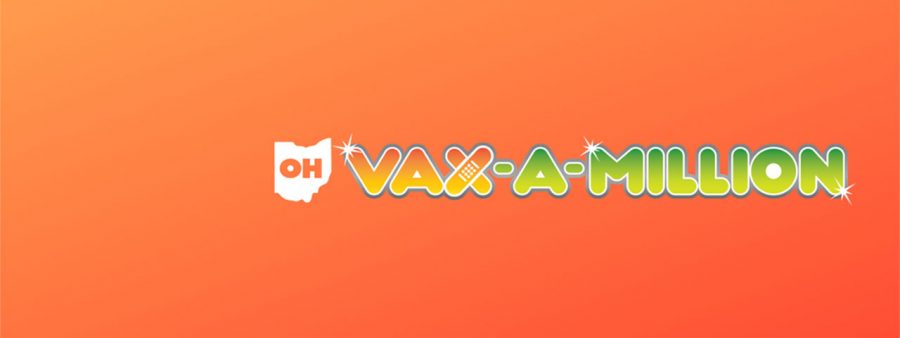Are vaccine incentives really working?
Photo courtesy of ohio.gov
Just a few months ago, most Americans were scrambling to get their hands on one of the few vaccines available throughout the country. However, now that vaccines are widespread and accessible to the majority of the population, the challenge of getting America vaccinated has shifted from rollout to acceptance by the general population.
To combat this, many incentives are being created to encourage people to get vaccinated. This idea originated with Krispy Kreme, who on March 22 began offering a free glazed donut to anyone who showed their vaccination card.
Other restaurants were inspired and began to offer similar incentives. According to people.com, you can now show your vaccination card to be eligible for free crinkle cut fries at Shake Shack, desserts at White Castle and hot dogs at New York’s hot spot, Nathan’s Famous.
These perks offered by businesses could just be publicity stunts, but recently, governments have begun creating vaccine incentives of their own that truly have the capability of changing minds about vaccination. One creative example of this is in Ohio, where a new program called Vax-a-Million gives fully vaccinated residents the opportunity to enter a lottery with a payout of one million dollars.
A difference in vaccination numbers has already been recorded as a result of these incentives. About one-third of unvaccinated people surveyed by The New York Times said that a cash payment of anywhere from $25 to $100 would make them more likely to receive the vaccine. This explains the recent success in Ohio, as according to huffpost.com, vaccinations have increased by 33 percent since the announcement of the Vax-a-Million program.
New Jersey recently became one of the many states to offer vaccine incentives; those who are vaccinated can get a glass of wine on the house at various vineyards, free access to state parks and potentially even a dinner with Governor Murphy and his wife. “We are giving New Jerseyans more reasons to step up and visit one of our 1,700 vaccination sites to receive a free COVID-19 vaccine,” said Murphy following the announcement of the incentives on May 19. “We are determined to reach our vaccination goals and make this the best Jersey summer yet.”
New York has been offering many similar incentives. These include free tickets and deals for many NYC hotspots including the NYC Aquarium, the Bronx Zoo, the Lincoln Center and the Botanical Garden. Another popular incentive is a pre-paid seven-day Metro Card for those who choose to get vaccinated. Governor Andrew Cuomo said, “We’re trying many ideas because we have to get the vaccination rate up.” Most recently, Cuomo announced the lottery in which vaccinated youths ages 12-17 will be eligible for a lottery in which they will give away four-year scholarships to SUNY schools, CUNY schools and NY community colleges.
The incentives have not come without controversy, as many have questioned the morality of the concept. WHS junior Gracyn Reed said, “Personally I do not think it is right, because if someone doesn’t want to get the vaccine they should not be… bribed into it. For the states to [resort to] bribery by offering free stuff is wrong and they should just let people decide for themselves.”
On the other hand, many people believe that incentives are necessary in order for vaccination rates to increase. WHS senior Dylan Berger stated, “Any incentive to get people vaccinated is a great thing. People who do not want to be vaccinated should be. They’re putting themselves and others at risk by not getting vaccinated. Billions of people don’t have access to the vaccine who would be dying to get it, especially in India, and it upsets me that we have to be bribed into it because people should want to get vaccinated.”
The range of incentives used to get as many people vaccinated as possible is something that has never been done before and is unique to the COVID-19 pandemic. States are getting creative and are clearly willing to do whatever it takes to get people vaccinated. Regardless of whether they make a lasting impact on vaccinations or COVID-19 in general, it has been interesting to see the various efforts employed to sway public opinion.

